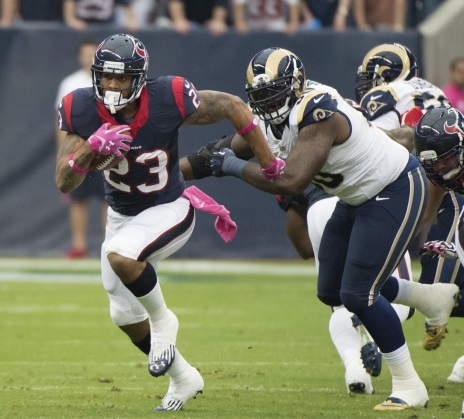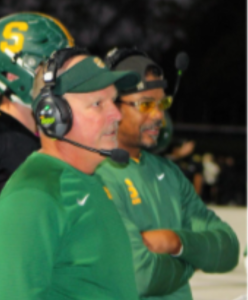Students debate whether or not college athletes should get paid

Running back Arian Foster recently admitted to accepting money while playing for his college’s football team. Players do not normally make money while in college due to their tough schedule. Some teammates have gone against their coach’s wish and have accepted money during their college career.
October 9, 2014
College athletes that play major sports have very little time in their schedule to make money for themselves. NCAA rules state that no player can accept any form of payment for playing college sports.
Studying and playing their respective sport is time consuming. The amount of time and dedication that some college athletes put into their sport could easily be redeemed by some sort of compensation.
“I see where some college kids are coming from where they think they want compensation, but college is about getting your act together and not all about the money,” senior Elliot Levy said.
Previous college scholars have reminisced on their time in college and can recall barely having enough time for a job without even playing a sport. Lately, former college athletes have publicly announced they accepted money from their university.
Former University of Tennessee football star and current Houston Texans running back Arian Foster admitted to accepting money while playing college football at Tennessee. In an interview for a documentary called “Schooled: The Price of College Sports,” Foster received extra money on the side so he could afford food and pay for rent.
“I could not believe that Foster accepted money, I truly thought he was a better person,” junior Nick Cassidy said.
There is a huge controversial debate on whether the NCAA should allow players to earn money from jobs, signing autographs or selling their own jersey. They may even be allowed to earn a percentage from the sales of jerseys that feature their specific number.
The NCAA is very opposed to anything of the sort. The irrational fear would undoubtedly be student athletes attending college and playing sports just to earn money. The NCAA does not want another scandal like the one SMU had in the 1980s for repeated violations of boosters paying athletes under the table or most recentl, Ohio State under Coach Jim Tressel.
College is a time for learning and preparation for the real world. It is not the NFL. Whichever direction the issue decides to go, the NCAA will not want to deal with a lot of chaos that will surround this dramatic situation.






